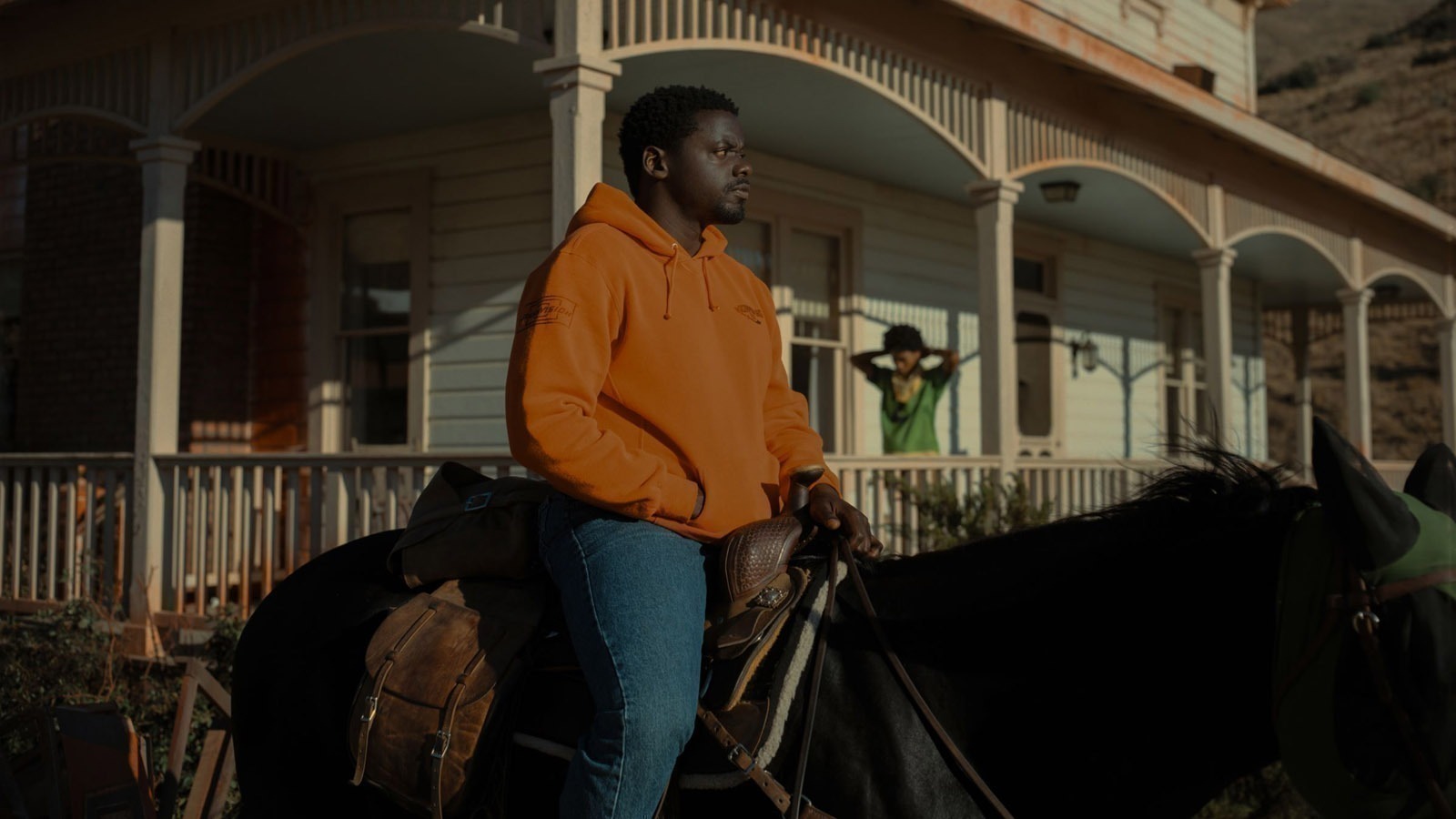Trouble in Paradise

On Tuesday, Iranian director Jafar Panahi was ordered to serve out a six-year sentence that had been handed down back in 2010 and upheld the following year. Panahi was arrested on July 11 when he went to Evin Prison in Tehran to check up on fellow filmmakers Mohammad Rasoulof and Mostafa Al-Ahmad, who had been arrested a few days before. After holding Panahi for a full week, Iranian authorities announced that the 2010 sentence had never been fully and properly enforced, even though Panahi—convicted for his supposed “intention to commit crimes against the country’s national security and propaganda against the Islamic Republic”—was placed under house arrest and has been forbidden from leaving the country for most of the past decade.
- Nope, the third feature from Jordan Peele (Get Out, Us) and one of the most anticipated films of the summer, opens today. OJ (Daniel Kaluuya) and Emerald Haywood (Keke Palmer), descendants of the uncredited Black jockey in Eadweard Muybridge’s proto-cinematic experiment The Horse in Motion (1878), are determined to be the first to capture extraterrestrials on film. “Spaghetti Western, alien-invasion thriller, trauma allegory, ecological parable, treatise on the pernicious power of filmed entertainment over the last century-plus of American history . . . Nope is all of this and yet, somehow, less,” writes Slate’s Dana Stevens, adding that “it’s such an original and idiosyncratic expression of its creator’s vision that sometimes the movie seems not to have yet made it all the way out of his head and onto the screen.” A good number of critics agree, but Nope has its champions, and among the most enthusiastic are WBUR’s Sean Burns, who delights in this “throwback to funny Friday night fright flicks like Tremors or Signs,” and the Telegraph’s Robbie Collin, who suggests that it “does for open skies what Jaws did for the beach, and The Wicker Man for Hebridean getaways.”
- For the Los Angeles Review of Books, Lauren Goldenberg has a marvelous conversation with Isaac Butler about his new book, The Method: How the Twentieth Century Learned to Act. Butler has teamed up with Icarus Films vice president and curator Livia Bloom Ingram to program The Method on Film, a series opening today at the Brooklyn Academy of Music and running through July 28. Hyperallergic’s Dan Schindel talks with them about the range of their selections, including Yakov Protazanov’s The Queen of Spades (1916)—featuring Ivan Mosjoukine, whose face we see in Lev Kuleshov’s experiments with montage—Sidney Lumet’s The Pawnbroker (1965) with Rod Steiger, and William Greaves’s Symbiopsychotaxiplasm: Take One (1968), in which we see, as Butler says, “the Method pushed to its most experimental.”
- Ethan Hawke has been talking to IndieWire’s Eric Kohn and Peter Rinaldi at Filmmaker about—among many other things—his six-part documentary series The Last Movie Stars. As David Fear writes in Rolling Stone, the careers of Paul Newman and Joanne Woodward span “many eras and way stations of twentieth-century cultural history: the Actor’s Studio generation, the Method-mad 1950s, the rise of TV, the theatrical revolution happening on Broadway, the socially conscious Sixties, the anything-goes New Hollywood Seventies.” But Hawke’s series “also doubles as a portrait of the agony and ecstasy of matrimony—an affectionate yet psychologically fraught, zero-prisoners-taken look at a union that had been lionized as a fairy-tale come true and was anything but.”
- Writer, filmmaker, and musician Dan Fox has launched a substack, and for his latest issue, he talks with French director Lucile Hadžihalilović and British artist, poet, and novelist Brian Catling about Earwig (2021), the story of a middle-aged man whose job is to replace a young girl’s teeth each day—because they’re made of ice. Hadžihalilović’s film “isn’t an adaptation, it’s a transmutation,” says Catling. “She made a classic work of art out of my story, and reversed the accepted sequence of events, that is, her film influenced me before it was made, because I always knew that there was another Un chien andalou or another Elephant Man out there. And this was the best one yet.”
- Trouble in Paradise (1932) is “a crook film—and not only because it’s about crooks,” wrote Frieda Grafe and Enno Patalas in a 1969 essay that Sis Matthé has translated for Sabzian. Ernst Lubitsch’s romantic comedy “reveals imposture to be the essence of cinema. Film, says [French writer and filmmaker Roger] Leenhardt, is the art of ellipsis—what else are theft, fraud, and imposture? Skipping links, creating seemingly or only outwardly conclusive connections between originally unrelated elements: that is the art of filmmakers and con artists, the essence of their respective means of expression. The retina’s slowness is their bliss.”



